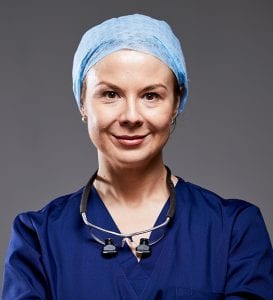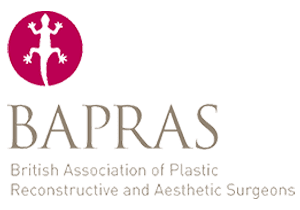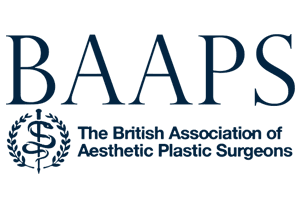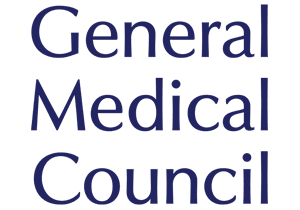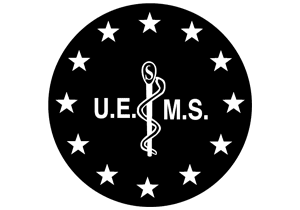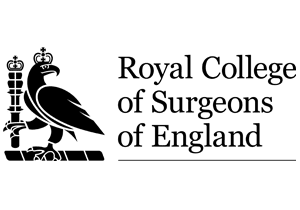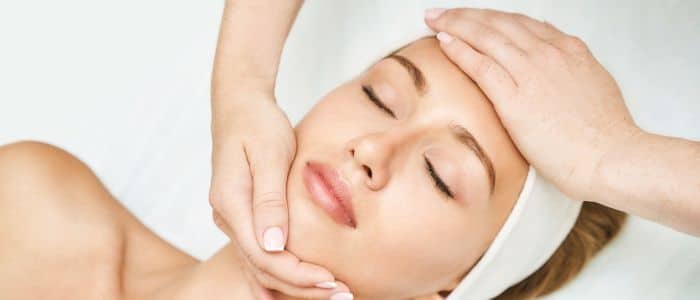
Table of Contents
- Discover Facial Rejuvenation Options to Refresh Your Look
- Causes of an Ageing Face
- What Is Facial Rejuvenation?
- Risks and Benefits of Facial Rejuvenation Options
- What Works and What Doesn’t When It Comes to Facial Rejuvenation
- FAQs about Facial Rejuvenation Options
- Further Reading about Facial Procedures with Consultant Plastic Surgeon Anca Breahna
Discover Facial Rejuvenation Options to Refresh Your Look
Ageing is a natural process that is accelerated by external factors such as sun exposure, smoking, air pollution, and even the use of harsh cosmetics. It is important to understand the causes of an ageing face in order to take the necessary steps to protect the skin and slow down the ageing process. Also, you should know that there are facial rejuvenation options available that could help you get rid of some of the signs of ageing. In this blog, we will discuss causes of an ageing face and facial rejuvenation options.
Chester Consultant Plastic Surgeon Anca Breahna offers different facial rejuvenation options that can help you get the aesthetic outcomes you desire.
Causes of an Ageing Face
The cause of an ageing face is a combination of multiple factors. Many of these factors are external, such as environmental pollutants, ultraviolet radiation, smoking, and poor lifestyle habits. Other factors are internal, including the natural ageing process, genetics, and some health conditions. All of these factors can contribute to an ageing face.
The natural ageing process is a major contributor to an ageing face. As we age, the skin loses collagen, elastin, and hyaluronic acid, leading to a reduction in elasticity, firmness, and hydration. The gradual thinning of the skin further contributes to an ageing face. In addition, the production of natural oils decreases, leading to dryness and wrinkles.
Environmental pollutants are another cause of an ageing face. Pollutants can damage the skin, leading to wrinkles and age spots. Ultraviolet radiation from the sun is also a major cause of an ageing face, as it can damage the skin’s collagen and elastin, leading to wrinkles, dryness, and pigmentation. Smoking can also lead to premature ageing, as it can damage the skin’s collagen and elastin.
Poor lifestyle habits can also leave a mark on your face. These habits include inadequate sleep, poor diet, and excessive alcohol consumption. These can lead to dehydration, which can result in wrinkles and age spots. In addition, these habits can make the skin more susceptible to environmental pollutants and ultraviolet radiation, leading to further damage.
Genetics also play a role. Some people are more prone to wrinkles and sagging skin than others due to their genetic makeup.
Some medical conditions such as diabetes, thyroid disorders, and nutritional deficiencies can cause your face to look older than you are.
What Is Facial Rejuvenation?
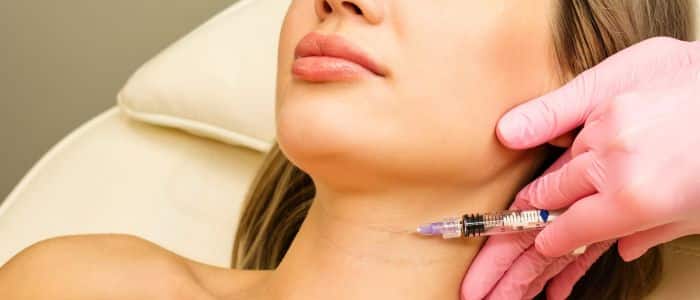
Facial rejuvenation refers to any cosmetic procedure aimed at restoring a more youthful appearance to the face. There are various non-invasive and surgical treatments available to achieve this goal.
Non-invasive facial rejuvenation treatments include injectables, such as skin relaxing injections and dermal fillers, chemical peels, microdermabrasion, and laser treatments. Skin relaxing injections is a popular option that temporarily paralyses muscles responsible for causing wrinkles, such as frown lines and crow’s feet. Dermal fillers, on the other hand, can be used to add volume to the face and fill in wrinkles and lines. Chemical peels use acids to exfoliate the skin, improving its texture and reducing the appearance of fine lines, sun damage, and pigmentation. Microdermabrasion is a non-invasive exfoliation technique that removes dead skin cells to reveal smoother, brighter skin. Laser treatments can stimulate collagen production, improve skin texture, and reduce the appearance of wrinkles, age spots, and scars.
Surgical facial rejuvenation treatments, on the other hand, are more invasive and involve incisions. These treatments include facelifts, brow lifts, eyelid surgery, and neck lifts. Facelifts involve removing excess skin and tightening underlying muscles to restore a more youthful appearance to the face. Brow lifts and eyelid surgery can help correct sagging skin around the eyes, while neck lifts address sagging skin and fat under the chin and jawline. These procedures can provide longer-lasting results than non-invasive treatments, but require more downtime and carry higher risks.
Facial rejuvenation can be achieved through a variety of non-invasive and surgical treatments. The best option for an individual depends on their specific concerns, goals, and medical history.
Risks and Benefits of Facial Rejuvenation Options
Facial rejuvenation treatments offer various benefits to people seeking to restore a more youthful appearance to their face. However, as with any cosmetic procedure, there are also potential risks and side effects that individuals should consider before undergoing treatment. Here are some of the risks and benefits of common facial rejuvenation options:
- Facelift
- Benefits: Facelifts can provide dramatic, long-lasting results, addressing sagging skin, deep wrinkles, and jowls. The procedure can help you look 10-15 years younger
- Risks: Risks of facelifts include bleeding, infection, scarring, nerve damage, and asymmetry. Recovery time can take several weeks, and the procedure carries the risks associated with general anaesthesia
- Dermal Fillers
- Benefits: Dermal fillers offer a non-surgical option for adding volume to the face and filling in wrinkles and lines. The procedure is minimally invasive and requires little to no downtime. Results can last up to a year, depending on the type of filler used
- Risks: Risks of dermal fillers include bruising, swelling, infection, allergic reactions, and the potential for lumps or bumps to form under the skin
- Skin Relaxing Injections
- Benefits: Anti-wrinkle injections offer a non-surgical way to reduce the appearance of wrinkles and lines. The procedure is quick, relatively painless, and requires no downtime. Results can last up to several months
- Risks: Risks of anti-wrinkle injections include bruising, swelling, headache, infection, and the potential for the injection to spread and cause unintended muscle weakness
- Laser Treatment
- Benefits: Laser treatment offers a non-invasive or minimally invasive option for improving skin texture, reducing the appearance of wrinkles, and correcting sun damage and pigmentation. The procedure is typically quick and requires little to no downtime
- Risks: Risks of laser treatment include redness, swelling, scarring, infection, and the potential for the laser to cause hyperpigmentation or hypopigmentation in some individuals
Patients considering facial rejuvenation options should carefully weigh the benefits and risks associated with each treatment to get optimal results after the treatment.
What Works and What Doesn’t When It Comes to Facial Rejuvenation
Facial rejuvenation is a popular way to restore a more youthful appearance to the face, and there are numerous treatments available to achieve this goal. However, some treatments are more effective than others. Here are some examples of what works and what doesn’t when it comes to facial rejuvenation:
What works?
- Dermal fillers: Dermal fillers can effectively add volume to the face, fill in wrinkles and lines, and improve the overall texture of the skin. They are a popular and effective non-surgical option for facial rejuvenation, including advanced treatments such as the liquid nose job using dermal fillers.
- Anti-wrinkle injections: Anti-wrinkle injections can reduce the appearance of wrinkles and lines, and prevent the formation of new ones. They are a quick and easy non-surgical option with minimal downtime
- Chemical peels: Chemical peels can improve the overall texture of the skin by removing dead skin cells and stimulating collagen production. They can reduce the appearance of fine lines and wrinkles, and correct pigmentation issues
What doesn’t work?
- Topical creams: Many topical creams claim to reduce the appearance of wrinkles and lines, but they are not typically effective on their own. They may provide some improvement, but they cannot replace more effective treatments
- Home remedies: Some home remedies, such as egg whites, lemon juice, or honey, may claim to provide anti-ageing benefits, but they are not typically effective for facial rejuvenation
- Some laser treatments: While laser treatments can be effective for facial rejuvenation, not all laser treatments are created equal. Some may provide minimal improvement or carry a higher risk of side effects than others
FAQs about Facial Rejuvenation Options

What is the best facial treatment to rejuvenate skin?
The best facial treatment for skin rejuvenation can vary depending on your skin type and specific concerns. Some popular options include chemical peels, microdermabrasion, dermaplaning, and micro needling. Consult with a plastic surgeon to determine the best treatment for your skin.
How can I make my face look 10 years younger?
There are several things you can do to make your face look younger, including:
- Wear sunscreen every day to protect your skin from sun damage
- Use anti-ageing products that contain ingredients like retinol and vitamin C
- Stay hydrated by drinking plenty of water
- Get enough sleep to prevent dark circles and under-eye bags
- Eat a healthy, balanced diet with plenty of fruits and vegetables
- Exercise regularly to improve circulation and maintain a healthy weight
- Consider cosmetic procedures like fillers or Botox to reduce the appearance of wrinkles
What is an efficient treatment for wrinkles?
There are several treatments that can be effective in reducing the appearance of wrinkles, including anti-wrinkle injections, dermal fillers, chemical peels, laser resurfacing and others.
What is non-surgical facial rejuvenation?
Non-surgical facial rejuvenation refers to cosmetic procedures that don’t require surgery or incisions. These treatments can include injectables like anti-wrinkle injections and dermal fillers, chemical peels, and laser treatments. Non-surgical options can be less invasive than surgery and can often be done in-office with little to no downtime.
Is laser good for facial rejuvenation?
Yes, laser treatments can be effective for facial rejuvenation. Laser resurfacing can help reduce the appearance of wrinkles, age spots, and scars, and can also stimulate collagen production for smoother, more youthful-looking skin. Laser treatments can be tailored to individual needs and can often be done in-office with minimal downtime. However, it’s important to consult with a licensed provider to determine if laser treatments are appropriate for your skin type and concerns.
Medical References about Facial Rejuvenation Options
- Facelift: What to expect and possible complications
- Facelift Surgery – American Society of Plastic Surgeons
- What is the difference between Botox and dermal fillers?
- Dermal Fillers: What They Are, Types, Benefits & Side Effects
- Blepharoplasty patients are getting younger – here’s why | ASPS
Further Reading about Facial Procedures with Consultant Plastic Surgeon Anca Breahna
- Read more about Upper Blepharoplasty
- Read more about Aqualyx (Fat Dissolving Injections)
- Read more about Lip Fillers
- Read more about Lip Flip
- Read Anca’s Blog about Lip Fillers Aftercare
- Read Anca’s Blog about What Is the Best Anti-Ageing Wrinkle Treatment?
- Read Anca’s Blog about Minimally Invasive Facelift Alternatives
